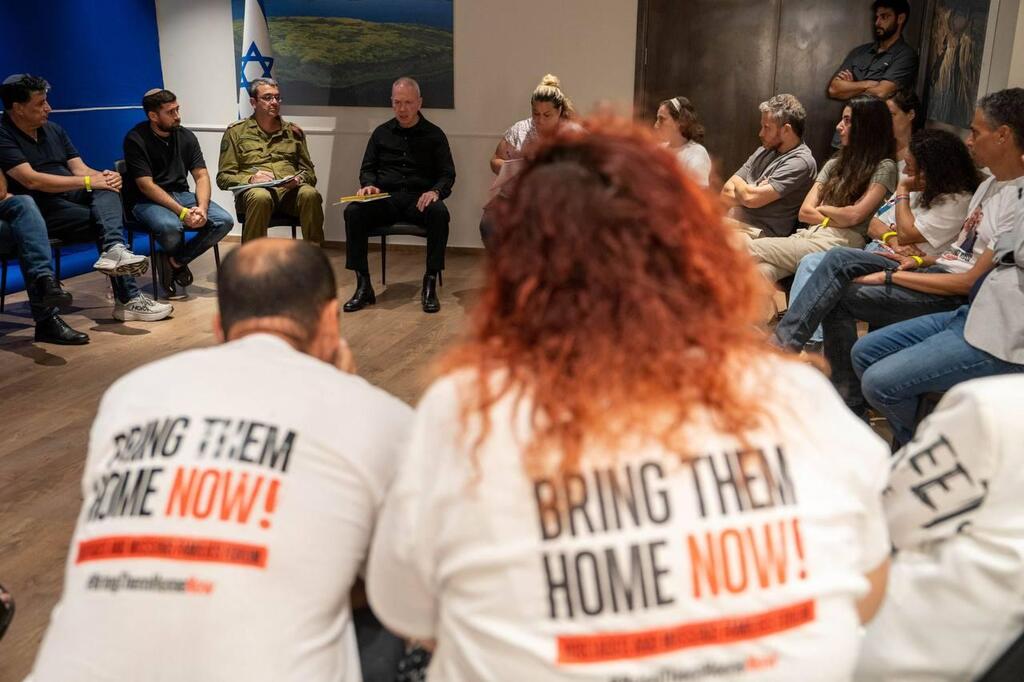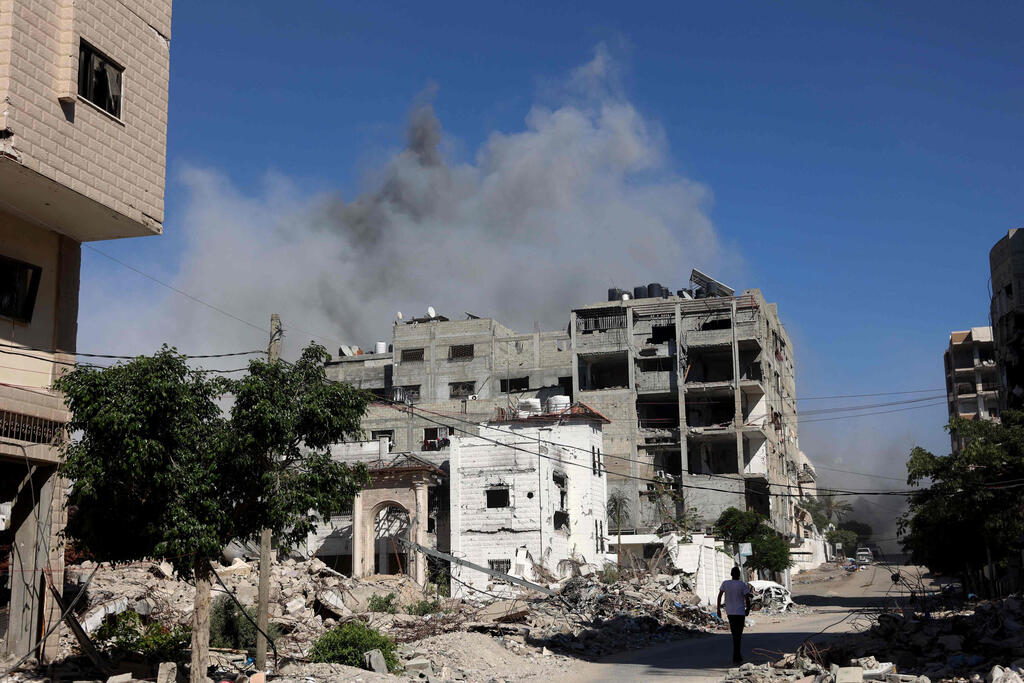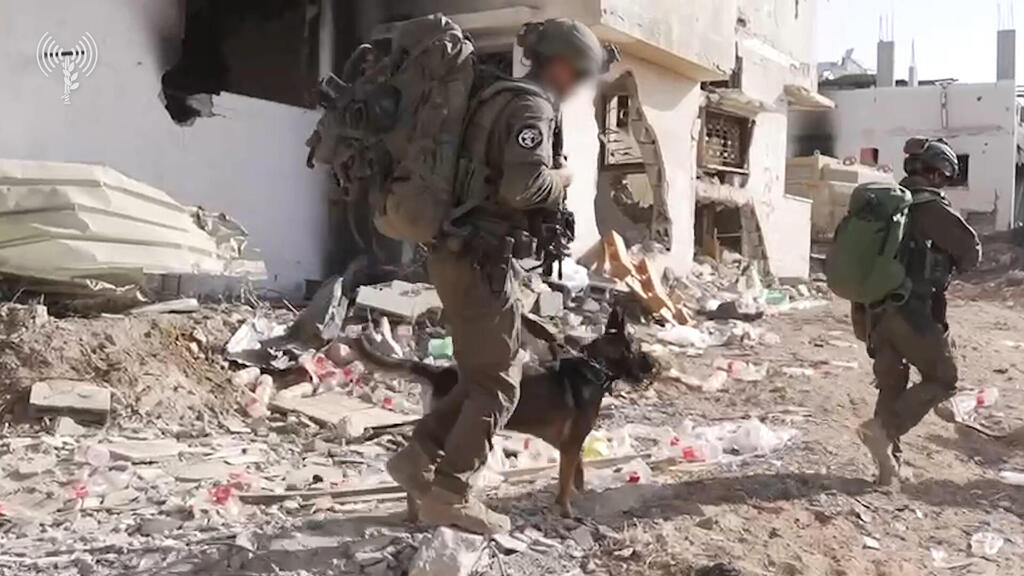Getting your Trinity Audio player ready...
In the past 24 hours, the Israeli military has intensified its offensive operations in the northern Gaza Strip. This effort aims to increase direct military pressure on Hamas to become more flexible and advance in negotiations for the release of hostages.
Defense Minister Yoav Gallant told families of hostages, "The military pressure has created conditions that allow progress in the deal. The defense establishment knows how to both stop and resume fighting anywhere in Gaza, as needed. We must leverage the military pressure to drive the deal forward and not miss this opportunity."
Sunday night, the IDF announced that the Air Force had increased its strikes in northern Gaza. Besides the ongoing battles in Gaza City's Shijaiyah neighborhood led by the 98th Division for several weeks, the IDF has begun raiding additional sites in several northern Gaza neighborhoods. On Monday, IDF Arabic-language spokesperson Lt. Col. Avichay Adraee called on residents of the Sabra, Al Rimal and Daraj neighborhoods to evacuate to the humanitarian zone.
The IDF had previously been in all these neighborhoods about four months ago and left after dismantling the Hamas and Palestinian Islamic Jihad (PIJ) brigades there. Recently, initial signs of reorganization by Hamas and PIJ have been observed in these neighborhoods. However, the IDF's primary reason for attacking these areas is to pressure Hamas in negotiations for the hostage release deal, rather than purely military motives.
All the neighborhoods where the IDF is operating are considered important centers for Hamas if it seeks to recover. The raids in these areas cause significant difficulties and suffering for Hamas members in distress, as well as for the civilian population, who have been urged to move to the displaced persons shelters in the al-Mawasi area and north of it.
The Associated Press and other media outlets reported Monday on discussions between senior Hamas officials in Gaza and their counterparts abroad. In these conversations, the senior members expressed their growing distress due to the military pressure exerted by Israel and urged the Hamas leadership abroad to secure a cease-fire and halt Israeli military pressure in Gaza.
Senior Hamas officials, whose messages to the Hamas leadership in Qatar and Lebanon were transcribed by a Middle Eastern source, explicitly said that operatives are being killed and are constantly on the run, and they called for a cease-fire. International and American media outlets noted that the source of these reports is likely credible.
The pressure on Hamas is also evident from the series of unusual statements issued by the terrorist organization Monday afternoon, in which it warned that continued Israeli military pressure in the Gaza Strip would "reset the process to square one."
Both the defense and political establishments now clearly understand that the intensified offensive operations, particularly in Rafah and northern Gaza, are Israel's main leverage regarding the hostages. This pressure is the primary reason Hamas leader in Gaza Yahya Sinwar agreed to the current negotiation framework.
Thus, it can be confidently assessed that the increased pressure and offensive operations by Israel in the past 24 hours are a direct and practical manifestation of this understanding.





